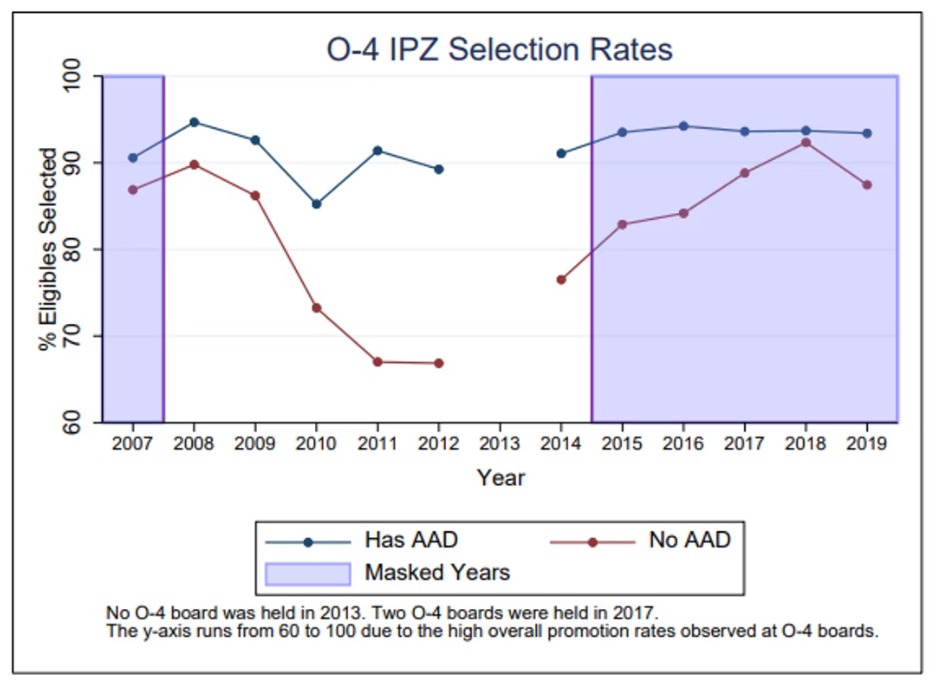Originally published on Air Force Times
What is education good for? The recent flip flopping on whether to consider advanced degrees when promoting mid-level officers shows that the Air Force has struggled with this question.
At times, we have masked, or purposely omitted, advanced academic degrees, or AADs, from officer promotion boards while at other times leaving them viewable. Masking may reduce officers’ incentive to pursue higher-level degrees, weakening our intellectual comparative advantage. On the other hand, the promotion system is meant to advance the best people, not “square fillers.” Masking may focus reviewing officials on relevant job performance metrics rather than distract them with potentially unrelated credentials.
The question over masking mirrors a broader economic debate over how to value the returns of education. The “human capital” view says the more education one receives, the more skilled they become. The signaling view holds that degrees primarily help distinguish high- and low-skilled individuals, since more talented people should find it easier to complete degrees. Under this theory, managers can use degrees as a proxy for productivity. But apart from that, the education itself may provide no inherent benefit.
Economists still debate this, and so does the Air Force — at least as evidenced by its flip flopping on masking. Prior to 1996, officer selection records included degree information comprising the level of education achieved, major, school name and completion year. Advanced academic degree masking first went into place in 1996 for officers eligible to promote to O-3 and O-4: these promotion boards could no longer see any degree information. This policy was extended to O-5 and O-6 boards in 2006. In 2008, however, the policy was reversed; all officer boards unmasked advanced degrees. This reversal was itself reversed in 2014, with masking reinstated for O-4 and O-5 boards. And, most recently, Air Force Secretary Frank Kendall unmasked advanced degrees for all O-4 and O-5 boards effective Jan. 1, 2023.
Our research, covering all active duty Air Force officers from 2007 to 2020, explored how the service’s advanced degree masking policies influence promotion outcomes. Under periods of unmasking, were board members relying on advanced degree information as a signal for productivity? And, when masked, did the lack of degree information change which individuals were selected for promotion?
The results for in-the-promotion zone candidates meeting O-4 and O-5 promotion boards from 2007 to 2019, seen at Figures 1 and 2, provide suggestive evidence that promotion boards reward advanced degrees when visible. . . .
Read the full article at Air Force Times.

